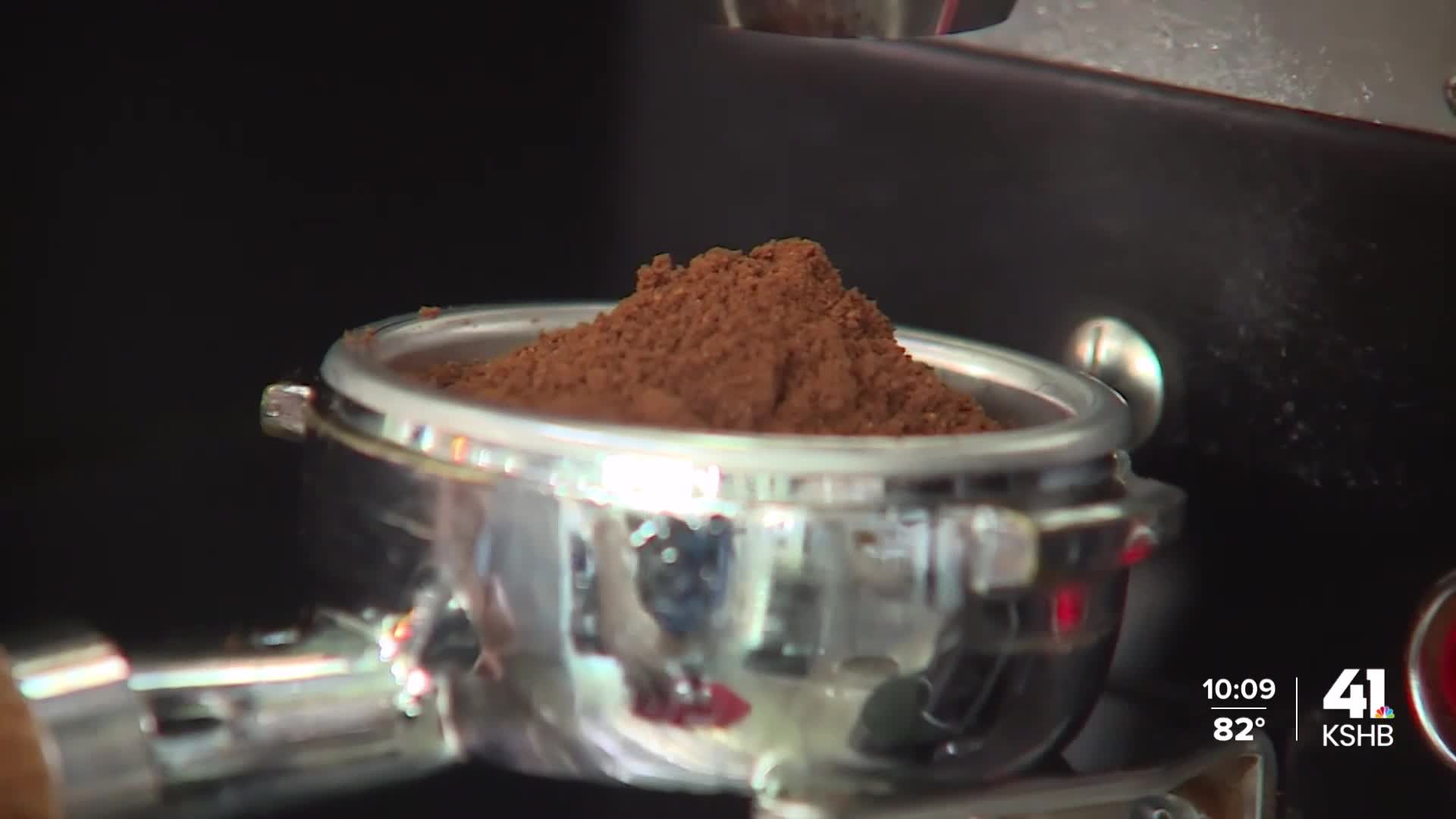KANSAS CITY, Mo. — Your coffee might be getting more expensive because of President Trump's proposed 50% tariff on Brazilian imports.
Local coffee shops say they are already feeling the effects of the tariff.
“I wish that this wasn't happening,” said Café Corazón’s CEO, Dulcinea Herrera.
Herrera said one quarter of the coffee sold at the store comes from Brazil.

Café Corazón just opened its third location in Kansas City, Missouri.
And while the coffee shop is growing, they are dealing with an increase in tariffs.
“It's hard to find the balance,” Herrera said.

The Trump administration says its reciprocal tariffs announced in April will take effect on August 1st if countries haven't reached a deal with the United States.
At this point, Brazil would face a 50% tariff.
More than 30% of the coffee in the US comes from the country.
So Herrera had to come up with new strategies.
“We're trying to buy a lot of bulk coffee,” Herrera said. “The tariffs haven't just impacted coffee; they've impacted everything. From cups to coffee to merchandising, everything has gone up."
That means they might have to increase their prices.
Herrera said they’ll try to keep the price increases to a few cents so it’s not too much for their clients.

At Blip Coffee Roasters, they have a similar dilemma as their cost of doing business increases.
“How much can you raise the price of a cup of coffee?” said Ian Davis, owner of the shop. “I don't know if we're ready, as a Midwestern market, to just have $20 cups of coffee.”
Davis said his business can't absorb the entire amount. He said they recognize their customers are also dealing with price increases.
He says 30% of their coffee comes from Brazil.
“It's quite possible that this coffee just isn't going to come to the United States,” he said. “We've already been working with different importers from other countries.”
The strategy to buy coffee from countries other than Brazil could affect shops like Anchor Island Coffee.

They don't use Brazilian coffee at the shop, but may still have to adjust.
“We are seeing some green coffee wholesalers starting to try to shift to different farms to bypass those tariffs,” said Mike Hastings, co-owner of Anchor Island Coffee.

He says it affects everyone.
“We're in this together," Hastings said. None of us is going to enjoy it. Some will fare better than others.”
He said the tariffs just come on top of other challenges.

“We are already charging an uncomfortable amount for the coffee just out of necessity based on coffee costs, production costs, employees, building, and everything,” Hastings said.
Davis agreed with Hastings that it's more than just tariffs that present challenges to their businesses.
"It just feels like a pretty impossible moment in time to try and keep things afloat,” Davis said. “This one tariff on Brazilian coffee is not going to, by itself, start closing people's businesses, but it probably couldn't come at a worse time.”




